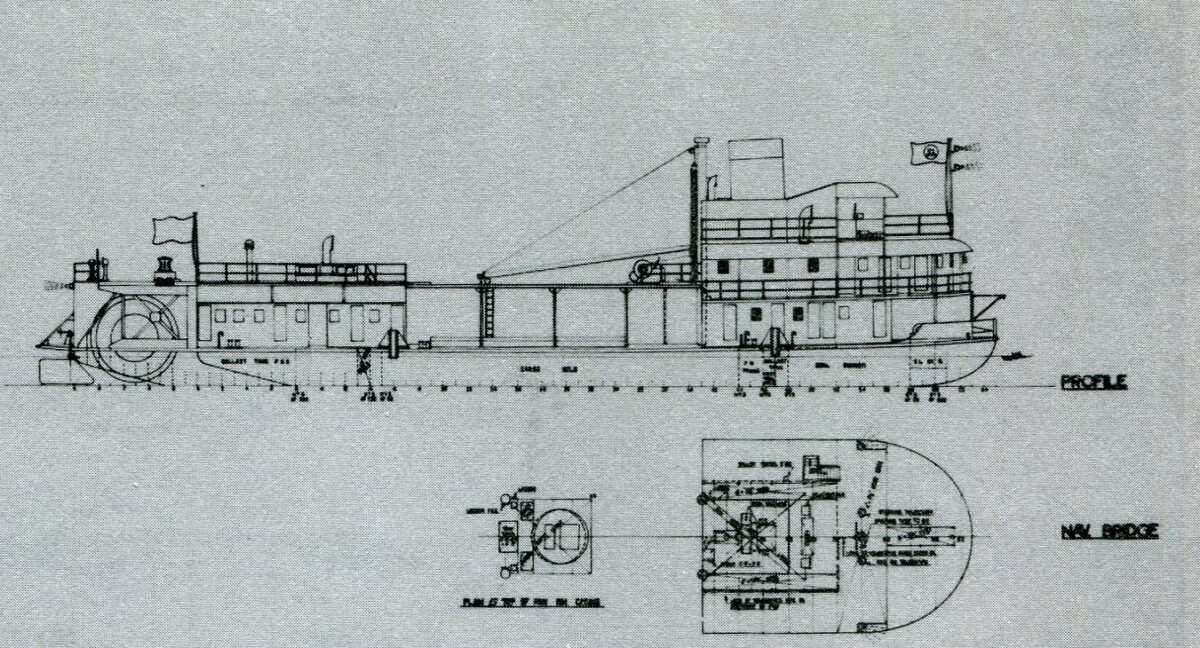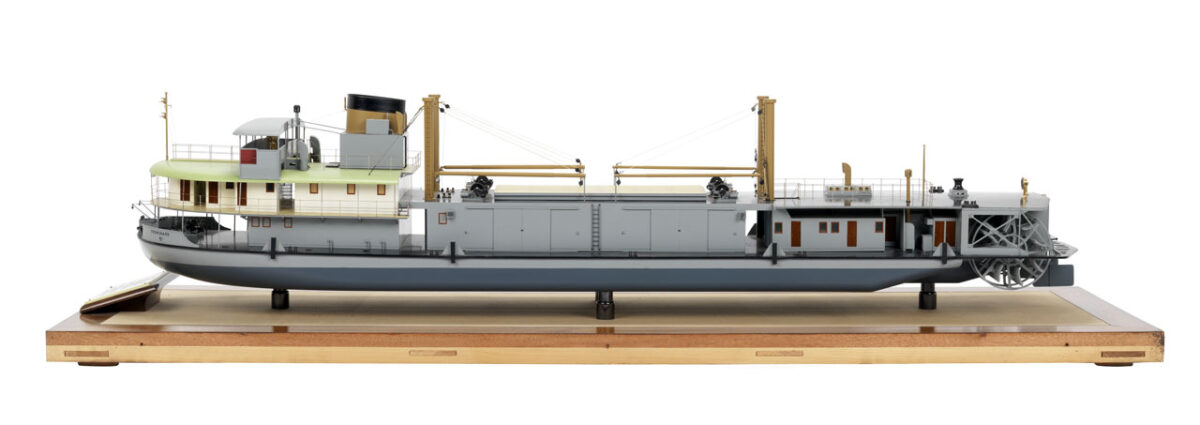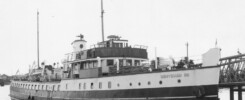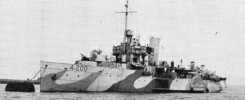
On Monday 20th February 1950 the 150ft long paddle steamer Aberdare, built for the United Africa Company, was launched at the shipyard of William Denny of Dumbarton on the Clyde.

Aberdare was the first of three identical sisters, including Quorra and James Pinnock, together with a fourth called Trenchard (pictured above) which was 50ft longer, all designed for the service between Burutu at the mouth of the River Niger and Garua at the top of the Benue River in Nigeria. All four were fitted with triple expansion steam engines with forced lubrication (as on the Stadt Luzern and Rhone in Switzerland) built by Lobnitz with the whole machinery enclosed to contain the oil. All had Babcock & Wilcox water tube boilers
They were built primarily as cargo paddle steamers for the trade taking cement stored in bags, steel and petrol up river and bringing back down ground nuts and bails of cotton. Each also had to be capable of towing up to four 350ton barges alongside.
The original intention had been to build them on the Clyde and then ship them out in sections for reassembly in Nigeria but in the end that was felt to be too costly so they were boarded up and towed out instead. Aberdare was the first to go, setting off on 10th May 1950, and the James Pinnock was the last, leaving on Sunday 2nd July 1950.
They were the last steamships built by Denny for this route. The following year the United Africa Company ordered from Denny two more slightly smaller paddlers, General Leclerc and Richard Lander, to a broadly similar design and for the same route but they were built with 6 cylinder Crossley geared Diesel engines instead of steam to provide the power for the paddle wheels.
Does anybody out there have any further information about their subsequent careers in Africa and what became of them?
Kingswear Castle returned to service in 2023 after the first part of a major rebuild which is designed to set her up for the next 25 years running on the River Dart. The Paddle Steamer Kingswear Castle Trust is now fund raising for the second phase of the rebuild. You can read more about the rebuilds and how you can help if you can here.
John Megoran
This article was first published on 20th February 2021.


